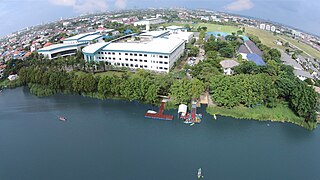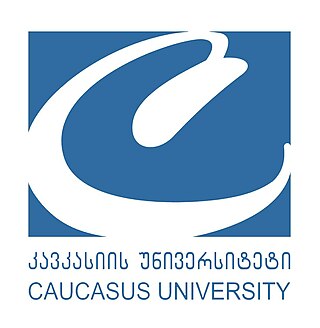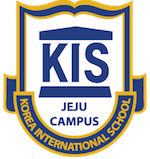
Advanced Placement (AP) is a program in the United States and Canada created by the College Board. AP offers undergraduate university-level curricula and examinations to high school students. Colleges and universities in the US and elsewhere may grant placement and course credit to students who obtain qualifying scores on the examinations.

The International General Certificate of Secondary Education (IGCSE) is an English language based secondary qualification similar to the GCSE and is recognised in the United Kingdom as being equivalent to the GCSE for the purposes of recognising prior attainment. It was developed by Cambridge Assessment International Education. The examination boards Edexcel, Learning Resource Network (LRN), and Oxford AQA also offer their own versions of International GCSEs. Students normally begin studying the syllabus at the beginning of Year 10 and take the test at the end of Year 11. However, in some international schools, students can begin studying the syllabus at the beginning of Year 9 and take the test at the end of Year 10.

International schools are private schools that promote education in an international environment or framework. Although there is no uniform definition or criteria, international schools are usually characterised by a multinational student body and staff, multilingual instruction, curricula oriented towards global perspectives and subjects, and the promotion of concepts such as world citizenship, pluralism, and intercultural understanding; most are private schools. Many international schools adopt a curriculum from programmes and organisations such as the International Baccalaureate, Edexcel, Cambridge International Education, FOBISIA, International Primary Curriculum, or Advanced Placement. International schools often follow a curriculum different from the host country, catering mainly to foreign students, such as members of expatriate communities, international businesses or organisations, diplomatic missions, or missionary programmes. Admission is sometimes open to local students to provide qualifications for employment or higher education in a foreign country, offer high-level language instruction, and/or foster cultural and global awareness.
Director : Dan Waterman. The Ashgabat International School is an international school in Ashgabat, Turkmenistan. Founded by QSI in 1994, it is a private, non-profit, coeducational, day school which offers an educational program from a 3 to 4 year old program through high school for students of all nationalities. High school students may take courses by distance learning through Quality Schools International Distance Learning. School staff monitors all distance learning courses.

QSI International School of Yerevan (QSIY) is an international school in Armenia, part of Quality Schools International, the largest non-profit international school group in the world. It is an independent, coeducational day school that offers an education to children from over 20 nationalities ages 3 to 18. QSI International School of Yerevan was founded in 1995 and the QSI school group was founded in 1971 by Jim Gilson and Duane Root. QSI has a reputation of hiring teachers who truly care for children. Several of their graduates were accepted into some of the most respected and prestigious universities in the world including Cambridge, Princeton, Columbia, Duke, Pepperdine, McGill, Boston University, UC San Diego, UC Berkeley, UC Santa Cruz, Charles University, Concordia, to name a few. What makes QSI Yerevan exceptional is not only its academic record, but the reputation for recruiting outstanding teachers who provide the means for success by caring for the whole child.

Almaty International School (AIS) is a private school located in Almaty, Kazakhstan. Founded by QSI in 1993, it is the third largest school out of all the QSI schools. The school offers an American-based Pre-K and K-12 programs. School facilities include: an elementary building, secondary building, annex, small gym, big gym, library, cafeteria, birch room, birch tree area, field with an Olympic size track, 3 playgrounds, and the teachers apartments. The school hosts international events and participates in many sports events such as the CAXC, CASC, CABC, and CAVC. The school is also used as a site for SAT, PSAT and AP testing. The school is operated with the authorization of the Kazakhstani Government.
Kyiv International School is a private international school located in Kyiv, Ukraine. It opened in 1992. The school is a member of Quality Schools International (QSI), a consortium of nonprofit college-preparatory schools following an American-style, international curriculum. It is a current member of CEESA. The school operates with the approval of the Ukrainian government and offers a PreK - Grade 12 education in the English language, including a DP International Baccalaureate program as well as Advanced Placement courses. The school year is from August to June.
Quality Schools International (QSI) is a group of non-profit international schools offering education in the English language, in a number of countries in Europe, Asia, Africa, the Middle East, South and North America. The first school was founded in 1971. The organization's world headquarters is located in Naxxar, Malta. The organization's founders and co-presidents are Jim Gilson and Duane Root.

Caucasus University is a private university in Tbilisi, Georgia. The university was established in 2004. It is the successor to the Caucasus School of Business, founded in 1998 in partnership with Georgia State University, Atlanta, U.S., during Georgia's transitional period from planned to free market economy.
Baku International School (BIS) is an international school located in Baku, Azerbaijan, which was established by the Quality Schools International (QSI) group in 1994. The school provides preschool education, elementary education, middle school, and secondary education. The school programs are accredited by the Middle States Association of Colleges and Schools (MSA) in the United States.
Clifford International School is an international school located in Guangzhou, China. The school follows the Canadian curriculum, or, more precisely, the Manitoba study programs. CIS students are taught in English, and they also have Mandarin lessons once a day.

Free University is a private research university in Tbilisi, Georgia, founded by Kakha Bendukidze, Georgian statesman, businessman and philanthropist often regarded as the Man Who Remade Georgia. Founded in 2007, the university has grown to comprise seven undergraduate and graduate schools, among which are, the university's oldest, School of International Relations, School of Business, Architecture, Governance and Social Sciences, Mathematics and Computer Science, Physics, Electrical and Computer Engineering, Law, and School of Visual Arts and Design.

Korea International School, Jeju Campus (KISJ) is South Korea's first international boarding school. The school is a sister campus to Korea International School and an affiliate of YBM, a publishing and English-language education services company. Founded in 2010 and first opened in 2011 as part of the Jeju Global Education City, the school's first senior class of 52 students matriculated in May 2016. KISJ is a proprietary, nonsectarian school offering an internationalized American college preparatory curriculum from Junior Kindergarten through Grade 12, with a boarding program starting in Grade 6. The high school began its AP Capstone™ in 2017–18, one of seven schools to offer it in South Korea.
QSI International School of Phuket is a non-profit institution that offers education in the English language for pre-school, elementary, and secondary students. The school is a part of the Quality Schools International group, which enrolls student from around the world.
A high school diploma is a diploma awarded upon graduation of high school. A high school diploma is awarded after completion of courses of studies lasting four years, from grade 9 to grade 12. It is the school leaving qualification in the United States and Canada.

QSI International School of Astana is a branch of Quality Schools International located in Astana, Kazakhstan. QSI Astana was founded in 2005 as a non-profit, private institution. QSI International School of Astana has an English language of instruction; it offers a curriculum taught entirely in English from elementary school to secondary school. In 2013 a new facility completed construction. The facility contains 32 classrooms, 3 computer labs, an auditorium, gymnasium, cafeteria, library, outdoor soccer field and basketball court, and several playgrounds. Classes range from Preschool to High School level.

QSI International School of Dili is a school located in Fatuhada, beside the Palm Spring estate in Dili, East Timor. It is one of a chain of schools operated by Quality Schools International The school has 112 students representing 20+ countries. The school has American-curriculum based classes ranging from preschool to secondary levels. It offers students the opportunity to learn and do extracurricular activities. It was accredited by the Middle States Association of Colleges and Schools.
QSI International School of Dushanbe is a branch of the non-profit organization Quality School International and is located in Dushanbe, Tajikistan. QSI International School of Dushanbe was founded in 2004 as a private institution and currently has approximately 150 students. QSI International School of Dushanbe teaches students from preschool to secondary school with a curriculum entirely in English. In addition to English, there are also other foreign-language classes offered in Russian, German, and French.
ISE, formerly known as the International School Eastern Seaboard, is a private, co-educational international school founded in 1994. ISE sets amidst the rolling hills of the Burapha Golf Course in Chonburi province, Thailand, and offers an American style international curriculum, presented in English from Pre-school through Grade 12. The school also offers the International Baccalaureate (IB) program in the High School. ISE is fully accredited through The Western Association of Schools and Colleges.
San Diego State University Georgia (SDSU-G), or SDSU Georgia, is a representation of San Diego State University (SDSU) in Tbilisi, Georgia, offering internationally accredited Bachelor of Science programs in the fields of science, technology, engineering, and mathematics (STEM) in the Republic of Georgia. These programs enable Georgian students to receive a high-quality STEM education and earn an American academic degree.










